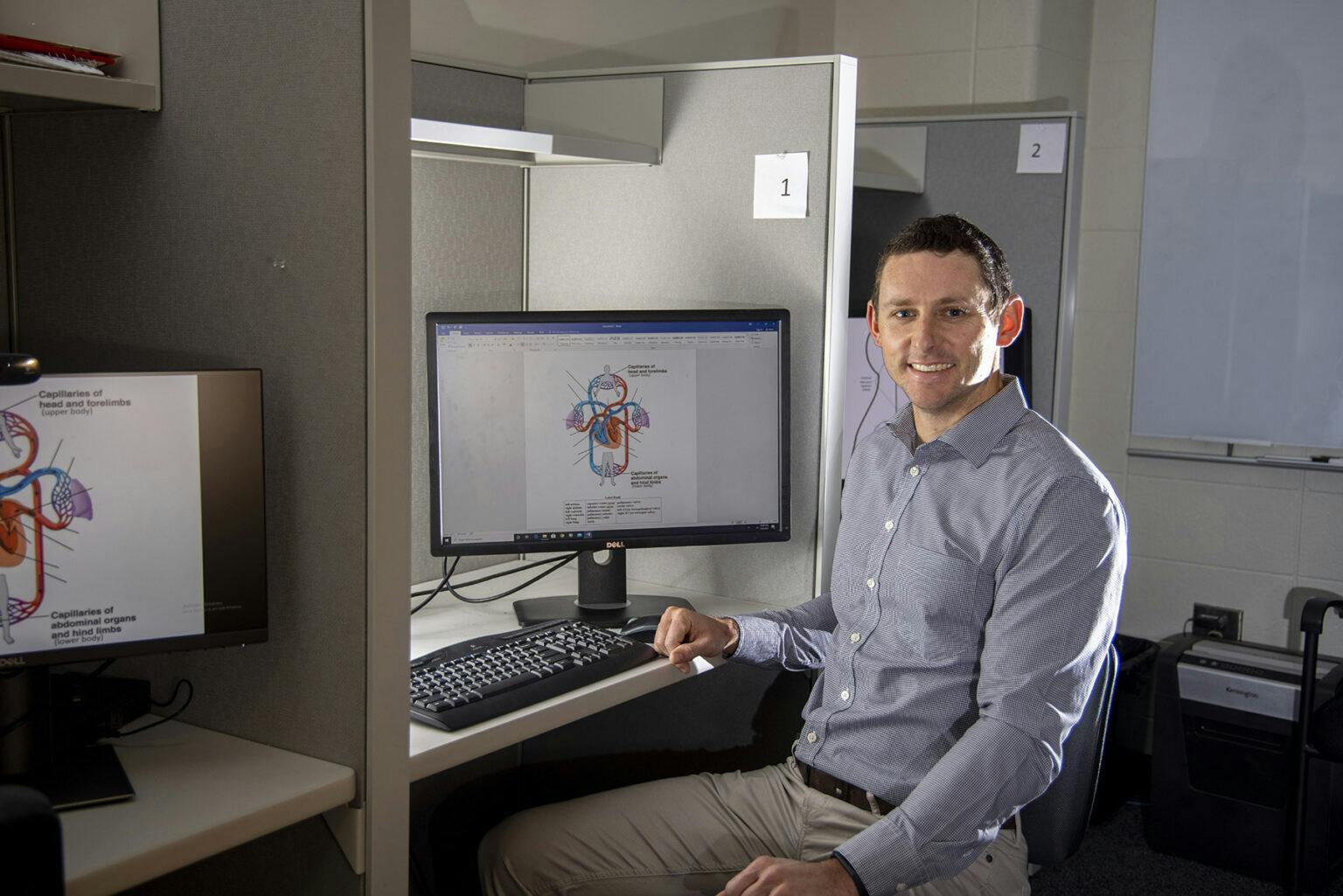Professor's work touches classrooms across country
Logan Fiorella’s research sits at the confluence of two global trends: rising demand for STEM education and the growing use of multimedia to support high-quality instruction.
Fiorella, an assistant professor of educational psychology at the University of Georgia Mary Frances Early College of Education, has devoted his career to the science of learning. Insights from his research are being implemented in a range of classrooms, from K-12 to higher education.
“We’re trying to identify practical strategies and guidelines that students and instructors can use to improve learning,” said Fiorella.
Effective learning strategies
Fiorella’s research builds on the idea that the best way to learn something is to teach it to someone else. His work explores the distinct mechanisms by which teaching enhances learning and uncovers specific strategies students can use.
“The expectation of teaching others can change how students prepare and study the material,” Fiorella explained, “but then the act of actually generating an explanation also seems to have unique benefits beyond just preparing to teach.”

Fiorella is the principal investigator on a project funded by the National Science Foundation that focuses specifically on how the act of drawing components of a lesson—say, the respiratory system in a biology class or molecular structures in chemistry—can help students understand the material itself as well as the gaps in their knowledge. The research is still ongoing, and it also seeks to identify conditions in which drawing is not be the best use of time and other instructional aids would be more effective.
“We’re trying to identify which key aspects of drawing are actually contributing to more accurate judgments of learning,” he said. “So is it the act of drawing? Is it the act of receiving feedback on your drawing and comparing it to a provided drawing? Is it the act of revising your drawing? How does each of those components contribute to students’ judgments?”
Enhancing instructional design
Drawing also figures into Fiorella’s instructional design research, which has found that having an instructor draw during a lesson is more beneficial to learning than having the instructor present a finished drawing to students. In another study, he and his colleagues found that students learn better in video presentations when a demonstration is conducted from their point of view rather than from the perspective of the instructor. Student comprehension is improved when the instructor makes frequent eye contact with the camera, as well.
The word “practical” comes up a lot when Fiorella discusses his work, so it’s perhaps not surprising that his research has found its way into learning environments across the nation and beyond. In February 2020, roughly a month before COVID-19 lockdowns forced more than 90% of U.S. students into remote learning, he published a review article titled, “Five ways to increase the effectiveness of instructional video.” In the months since, it has been shared on Twitter by nearly 900 accounts and is now in the 99th percentile in his field for the amount of online attention it has received.
On campus, he’s shared his findings through the Center for Teaching and Learning, the Division of Academic Enhancement, the Scientists Engaged in Educational Research Center, and the Augusta University/UGA Medical Partnership. He also teaches a First-Year Odyssey Seminar for students on the science of habit formation and its implications for learning.
Honors and awards
Nationally, Fiorella has been recognized with honors that include the Richard E. Snow Award for Early Contributions in Educational Psychology from the American Psychological Association, the Outstanding Early Career Award from the American Educational Research Association, and a fellowship from the National Academy of Education and Spencer Foundation.
In many ways, Fiorella’s work brings him full circle to his days as an undergraduate student, when he assisted with research that focused on improving the effectiveness of training systems for the military. That’s when he became interested in applying the principles of cognitive science to improving learning, and he now makes it a point to bring undergraduate students into his lab through UGA’s Center for Undergraduate Research Opportunities. He currently mentors three Ph.D. students who will go on to advance the science of learning through their own research.
“Ultimately, I want them to explore their own ideas,” Fiorella said. “And that’s what I’ve tried to do by giving them the opportunity to run their own independent research and then publish journal articles that share their findings.”
